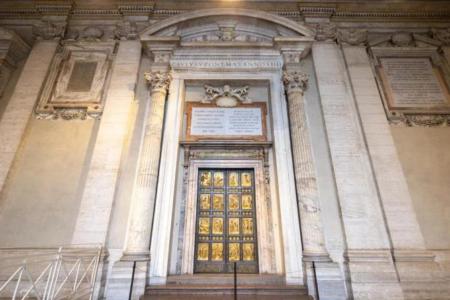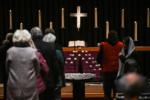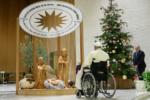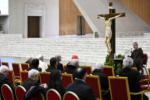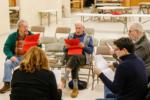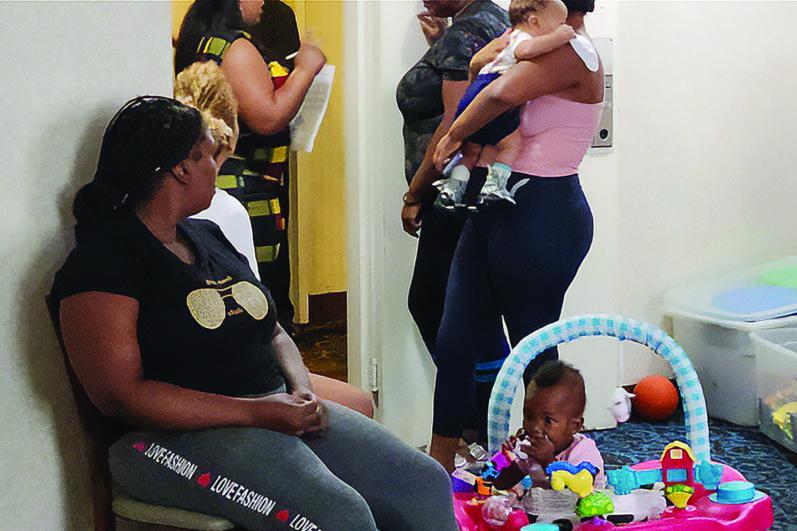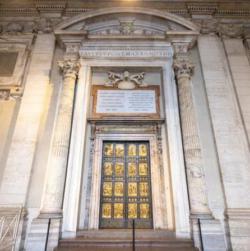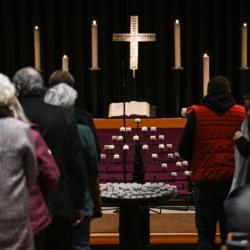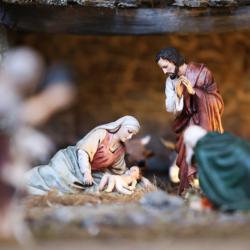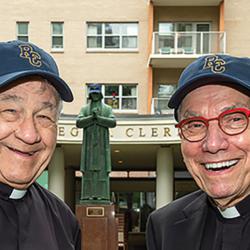Catholic Charities struggles to meet family shelter needs
BRAINTREE -- Over the weekend of Oct. 14 and 15, three families came to the Catholic Charities Inn in need of shelter.
Catholic Charities Boston President Kelley Tuthill fears that next weekend, three might become six. The weekend after that, six might become nine.
The Catholic Charities Inn, which opened in June in response to the enormous increase in migrant families coming to Massachusetts, currently houses 139 people. Like many public and private shelters throughout the state, the inn has little room for more. The influx of migrants has overwhelmed the Archdiocese of Boston to the point that, in an Oct. 23 letter, Cardinal Seán P. O'Malley said that parishes should prepare for the possibility of providing emergency short-term shelter this winter.
"If a family comes to our door, where will we send them?" Tuthill said in an Oct. 18 interview. "I'm not sure what it is that we're supposed to do, and that's heartbreaking and deeply concerning."
On Oct. 16, Gov. Maura Healey said that the state's shelter system cannot safely house more than 7,500 migrant or homeless families, a number that the state expects to reach by the end of the month.
The Archdiocese of Boston and Catholic Charities Boston have been in close contact with the Healey administration as the shelter crisis has intensified in recent months. However, Tuthill said, there isn't much more they can do to house migrant and homeless families.
"It's heartbreaking not to know where they can go," Tuthill said.
Massachusetts is the only state in the country with a "right to shelter" law that guarantees emergency housing to families. Gov. Healey cannot defy the law but said that the state will establish a triage system, providing shelter to "high needs" families while putting others on a waitlist.
Tuthill said that the "unprecedented" number of migrants, most of them Haitians fleeing poverty and gang violence in their home country, has strained the five shelters that Catholic Charities operates. Five became six with the emergency opening of the Catholic Charities Inn. Half of all shelter residents are children.
"The needs have just skyrocketed," Tuthill said. "It's so above and beyond a typical year in Massachusetts."
At the beginning of the year, there were only 4,000 families in shelters statewide. Now, there are over 7,000. The Catholic Charities Inn is understaffed and relies on a temp agency to find workers. Shelter space is rapidly disappearing, and staff members are intimidated by protests that have taken place outside some shelters throughout the state. Tuthill said that, as rooms fill up, Catholic Charities Boston is struggling to respond.
"We're trying to figure that out," she said. "It's absolutely keeping our team up at night."
Tuthill regularly meets with Healey administration officials to discuss the crisis.
"We are at the table," she said. "We are trying to help, to come up with creative solutions and be good partners."
Cardinal O'Malley and Father Bryan Hehir, secretary of health and social services for the Archdiocese of Boston, have repeatedly spoken with Gov. Healey. This month, Father Hehir has met with Gov. Healey and Lt. Gov. Kim Driscoll twice to receive briefings on the shelter crisis.
"It doesn't feel good," Father Hehir said Oct. 19, "but I also understand how hard the governor and the lieutenant governor have worked. It's not a lack of commitment or a lack of trying. She's trying to send an alarm to the federal government."
Tuthill echoed Gov. Healey's call for more aid from the federal government and praised the Healey administration for "working diligently to get as many rooms as possible."
Gov. Healey has also called for an additional $250 million from the state legislature to fund shelters.
"We would support that for sure," Father Hehir said, "but we've got to see. That's a lot of money, and how are we going to get that through the legislature?"
Cardinal O'Malley sent a letter to every state senator and representative urging them to take action. In Tuthill's words, Cardinal O'Malley has called for "an addressing of immigration policy" at the federal level, as well as more state funding to address the crisis.
The archdiocese has offered eight of its buildings -- four in Boston, two in Charlestown, one in Mattapan, and one in Roxbury -- to the state for use as emergency shelters. However, some of the buildings have asbestos and cannot be used in their current condition.
"So far," Father Hehir said, "we haven't been able to move that piece forward. Everything else has gone forward in a very collaborative way. We are trying to find a way to get those buildings acceptable."
Shelters also remain full due to what Tuthill called the "cumbersome" process of receiving authorization to work in the U.S. The paperwork can take months to process, and the longer it takes, the longer migrants must rely on shelters for basic needs.
"We ought to give them the right to earn a living and support their family," Tuthill said.
Catholic Charities Boston's legal teams have received two state contracts to help speed up work authorization for migrants. Father Hehir said that, often, "the first thing" migrants in shelters want to know is when they can start working.
"Our faith calls on us to welcome the stranger and to be compassionate," Tuthill said. "We don't ask people where they're from, how they got here, 'Show us your papers.' We say, 'How can we help you?' You're safe now.'"
